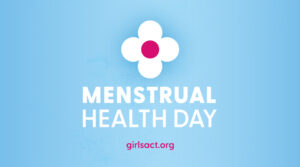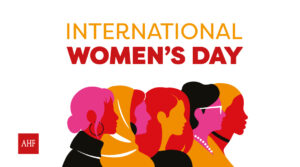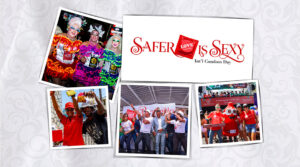People who receive an HIV diagnosis begin to reflect on the people around them, assessing who they can trust and who they can’t. Sometimes the family is not the first option to talk openly about the diagnosis, even other times the partner is not the first person to whom this situation is communicated.
This is where friends come in, that network that supports a person during their most difficult times and that is expected to accompany them to overcome all obstacles.
If you have a friend who was confident enough to tell you about their HIV diagnosis, keep in mind that it was not a random choice, but the result of an assessment of those closest to you.
The value of friendship
The first thing your friend is looking for from you is precisely that, your friendship. He needs you to help him feel “normal”, to know that his life should not change for the worse after learning that he lives with the virus.
In this way, the first thing that will benefit him is that you do not change your attitude towards him and reaffirm that he is an important person for you.
In addition to this, it will help you to read about HIV in reliable sources, such as medical sites or civil organizations that have been working on the subject for decades. This will clear up any questions you may have, although ultimately you can ask your friend, always in a respectful manner.
I already informed myself, and now?
Connecticut Children’s Hospital has some concrete actions you can take to show your friend that you want to support them:
1) Don’t tell anyone else that your friend has HIV. The diagnosis you received is personal and private information, and it is not for you to disclose it. Make a commitment to your friend that they can trust you.
2) Be willing to be there to talk about HIV if he or she starts the conversation about it. You can ask a few questions about the situation, but if you see that he’s not ready to answer your concerns, change the subject.
3) Accompany him or invite him to do activities that reduce stress, such as playing sports, walking or something else that you both like, such as painting or playing video games.
4) Avoid being a bad influence on your friend and do not induce them to drink alcohol, to smoke or to use illegal drugs. If you consume these substances, try not to do so when you are with that person or avoid sharing them with them.
5) Try to help your friend cover his earrings, whether at school, work or on the go. Offer to go to the health center when he can’t, for example, to make an appointment or get medicine.
6) If you are present when other people speak ill of your friend for living with HIV, stop and try to educate these people, explaining that anyone is exposed to acquiring the virus
7) If you see your friend too sad or distressed with what is happening to him, suggest that he go to a therapist so that he can do a more precise follow-up of what may be happening to him emotionally.
Become your anchor to normal
Remember that HIV only has three routes of transmission: blood, sexual and perinatal (that is, from mother to child), so as long as you do not have any activity that involves these routes in any way, they can live together normally without fear for HIV to be transmitted to you.
Remember that stigma and discrimination are two of the main problems that people with HIV face, so you must be very respectful every time you talk to your friend about it.
And if you haven’t had a screening test yet, at AHF Latin America and the Caribbean we do it for free. Just come to our office in your country or write to us on Whatsapp.






